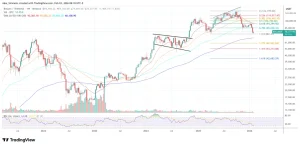Investors Urged to Heed RBI Warnings as Cryptocurrency Risks Mount

The Reserve Bank of India (RBI) has reiterated cautionary guidance regarding cryptocurrencies, emphasizing the potential financial, regulatory, and systemic risks associated with digital assets. Despite soaring retail and institutional interest, investors are being warned about volatility, lack of legal safeguards, and the possibility of significant losses. Financial authorities stress that cryptocurrencies remain outside the ambit of regulated banking and payment systems, leaving users vulnerable. Experts advise that ignoring these warnings could expose investors to sudden market shocks, scams, and liquidity crises. A balanced understanding of the risks is essential for informed participation in India’s emerging crypto ecosystem.
RBI’s Persistent Warnings
The RBI has consistently highlighted the inherent risks in cryptocurrencies, describing them as unregulated, highly volatile, and speculative. Officials have cautioned that the absence of investor protection mechanisms leaves participants exposed to potential fraud, hacking, and market manipulation.
This stance is not meant to curb innovation but to alert investors that crypto holdings do not enjoy the same protections as bank deposits or regulated financial instruments. The RBI’s warnings are grounded in both domestic financial stability considerations and international experiences with crypto market disruptions.
Risks Highlighted for Investors
Several specific risks underline the RBI’s caution:
- Volatility: Cryptocurrencies can experience rapid price swings, leading to sudden losses for both retail and institutional investors.
- Liquidity and Settlement Concerns: Crypto assets operate outside the traditional banking infrastructure, posing challenges in converting them to fiat currency efficiently.
- Fraud and Cybersecurity Threats: The decentralized nature of crypto exchanges and wallets increases susceptibility to hacks, scams, and fraudulent schemes.
- Regulatory Uncertainty: Without comprehensive legal frameworks, enforcement against malpractices remains limited, creating a high-risk environment for investors.
These factors collectively underscore why the RBI urges careful evaluation before participating in digital asset markets.
Investor Responsibility and Risk Management
Financial authorities stress that investor due diligence is crucial. Experts advise adopting robust risk management strategies, including limiting exposure to speculative assets, diversifying portfolios, and using trusted platforms with strong security protocols.
Ignoring official guidance may result in overconfidence or impulsive trading behaviors that amplify losses. Understanding both macroeconomic and operational risks is essential for safeguarding capital in the volatile crypto market.
Lessons From Global Trends
Global experiences reinforce the RBI’s position. Countries with high crypto adoption, such as the United States, South Korea, and parts of Europe, have seen sudden regulatory interventions, exchange collapses, and sharp market corrections, which have impacted both retail and institutional investors.
India’s regulators aim to preempt similar disruptions by alerting the public early. While this approach may appear restrictive, it also provides a buffer against systemic shocks and helps investors make more informed decisions.
Outlook for Indian Investors
As cryptocurrency adoption grows in India, a measured approach is critical. Investors should respect regulatory guidance, evaluate risk-reward scenarios carefully, and avoid exposure beyond their financial capacity.
The RBI’s warnings are not a prohibition but a prudent reminder that the rapidly evolving crypto ecosystem carries both opportunity and peril. Responsible participation, guided by awareness of systemic risks and personal risk tolerance, will define successful engagement in India’s emerging digital asset market.




